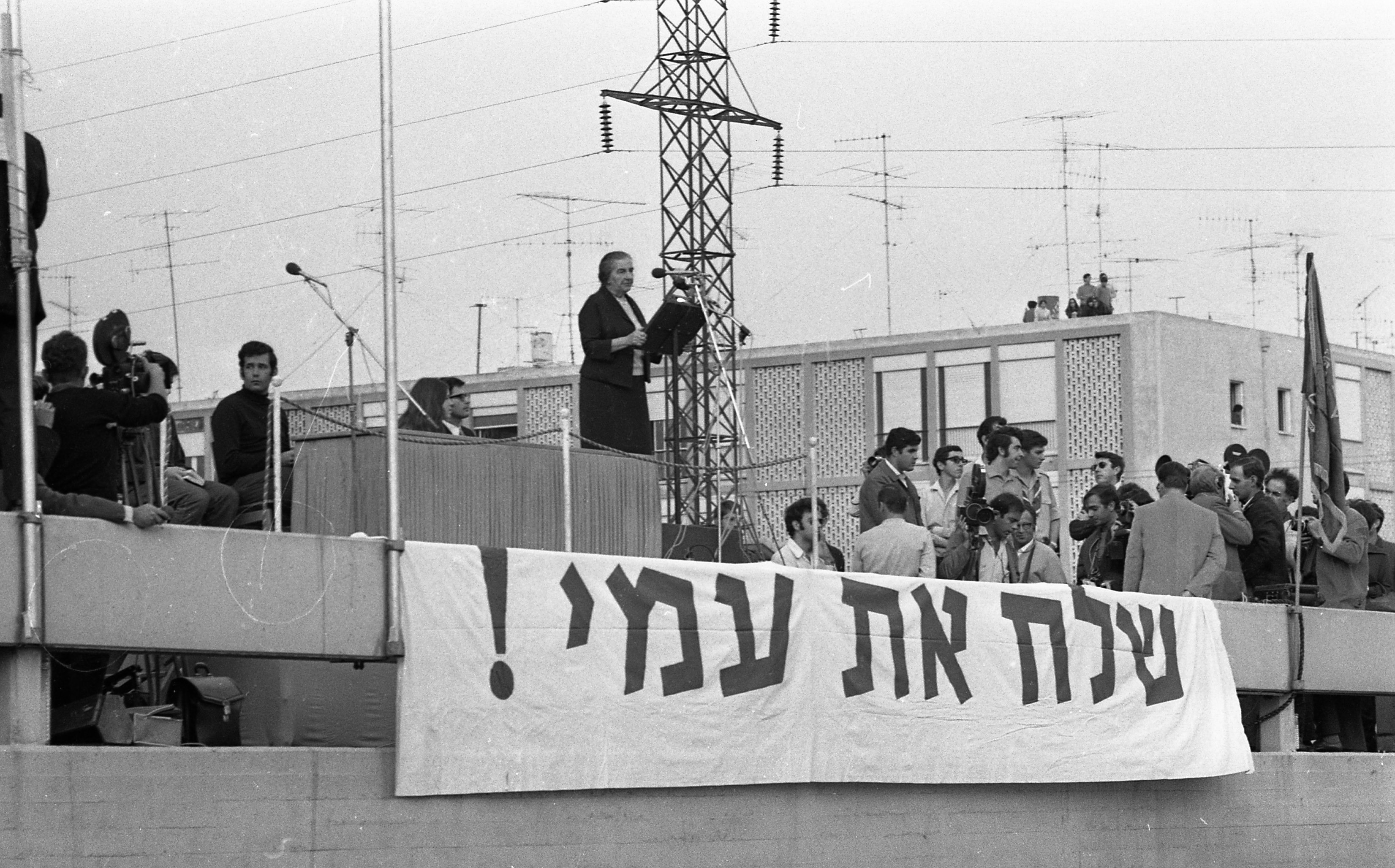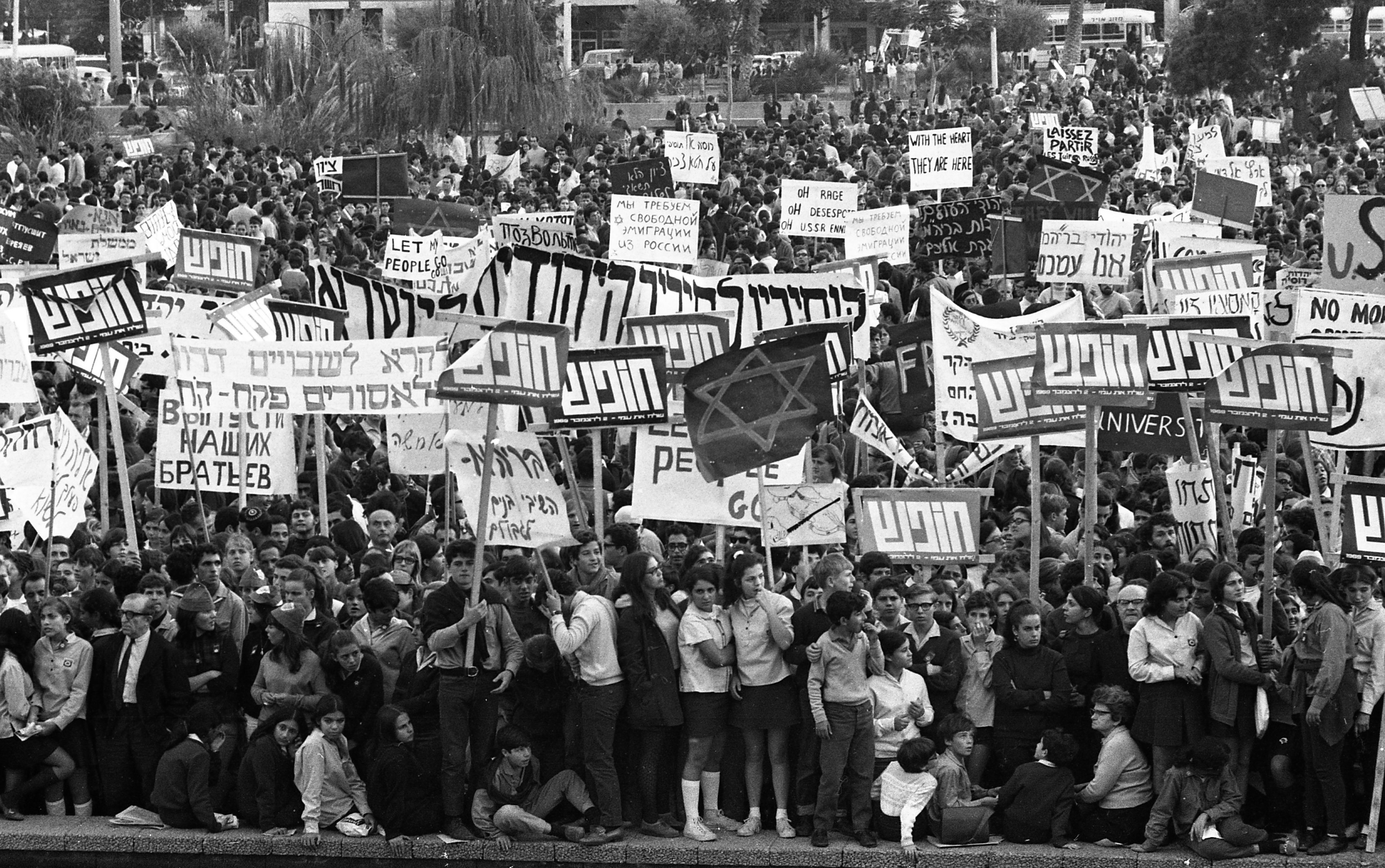Passover, the Festival of Freedom, has provided hope for oppressed people across time and space.
In this conversation starter, we will be addressing the following questions:
- How has the Passover story, and the seder itself, inspired oppressed people?
- How might participating in a seder and retelling the story of Soviet Jewry inspire people to change the world?
(א) וְאַחַ֗ר בָּ֚אוּ מֹשֶׁ֣ה וְאַהֲרֹ֔ן וַיֹּאמְר֖וּ אֶל־פַּרְעֹ֑ה כֹּֽה־אָמַ֤ר יְהוָה֙ אֱלֹהֵ֣י יִשְׂרָאֵ֔ל שַׁלַּח֙ אֶת־עַמִּ֔י וְיָחֹ֥גּוּ לִ֖י בַּמִּדְבָּֽר׃
(1) Afterward Moses and Aaron went and said to Pharaoh, “Thus says the LORD, the God of Israel: Let My people go that they may celebrate a festival for Me in the wilderness.”
This verse relates the first time that Moses and Aaron approached Pharaoh with the demand to "Let My people go!".
- How might Moses and Aaron feel as they approach Pharaoh?
- What might give them the courage to make the demand?
- During the conversation at the burning bush, God told Moses that Pharaoh will deny the request. Do you think that knowing the outcome makes it easier or harder to approach Pharaoh?
עֲבָדִים הָיִינוּ לְפַרְעֹה בְּמִצְרָיִם, וַיּוֹצִיאֵנוּ ה' אֱלֹהֵינוּ מִשָּׁם בְּיָד חֲזָקָה וּבִזְרֹעַ נְטוּיָה.
We were slaves to Pharaoh in the land of Egypt. And the Lord, our God, took us out from there with a strong hand and an outstretched forearm.
The Passover Haggadah tells the end of the story.
- What is the main point of the sentence?
- How might this inspire oppressed people?
(ה) בְּכָל דּוֹר וָדוֹר חַיָּב אָדָם לִרְאוֹת אֶת עַצְמוֹ כְאִלּוּ הוּא יָצָא מִמִּצְרַיִם, שֶׁנֶּאֱמַר (שמות יג), וְהִגַּדְתָּ לְבִנְךָ בַּיּוֹם הַהוּא לֵאמֹר, בַּעֲבוּר זֶה עָשָׂה ה' לִי בְּצֵאתִי מִמִּצְרָיִם.
(5) In every generation a man is obligated to regard himself as though he personally had gone forth from Egypt, because it is said, “And you shall tell your son on that day, saying: ‘It is because of that which the Lord did for me when I came forth out of Egypt” (Exodus 13:8).
A major concept during the Passover seder, which is expressed in the Mishnah above, is that of feeling as if each person was personally liberated from Egypt.
- Why might it be difficult for you to feel as if you had been a slave in Egypt who had then had been freed?
- Which elements of the seder might help you to feel the experience?
There are many examples of oppressed people who have been inspired by the Passover story while fighting their own oppression. An example is Martin Luther King Jr.'s speeches which often included Biblical verses regarding freedom.
Another example, which many people today think about during the seder, is the story of the struggle to free Soviet Jews from the Soviet Union from the 1960's until the collapse of the USSR in 1991.
During the struggle, Soviet Jews and those hoping to get them released, were inspired by Moses and his confrontation with Pharaoh. The resources below illustrate some of the ways that the Exodus motif was incorporated into the activism that eventually secured their release.
Let My People Go Rally with Golda Meir, 1969, From the Collection of the National Library of Israel

Prime Minister Golda Meir is seen standing behind a banner at a rally. The banner says, "Let My People Go!"
- What is the source of the quote?
- Why do you think this quote was chosen?
This quote became the rallying cry of the Soviet Jewry movement.
Let My People Go, Bnei Brith Poster, From the Collection of the National Library of Israel

- How does this poster use the quote?
- How do the graphic elements help to promote the message of the poster?
- How do you feel when you look at the poster?
Solidarity Rally for Soviet Jewry, 1969, From the Collection of the National Library of Israel

Many people are carrying signs at the rally.
- How many different languages do you see?
- The word "חופש" (freedom) is written on many signs. What other words would you suggest to write on a sign?
- If you look very closely, you can see signs that say, "Let My People Go". How might this picture and the quote help you to feel as if you, yourself, had left Egypt?
From the Collection of National Conference on Soviet Jewry, Wikimedia
https://commons.wikimedia.org/wiki/File:%22Let_my_people_go!%22_(5611680914).jpg

- What Torah event is this poster alluding to?
- What symbols of that event do you see in the poster?
The exodus from Egypt happened such a long time ago and yet the Haggadah tells us to feel as if we were there!
- Why do you think it is important to feel as if you were there?
- How might telling the story of the Soviet Jewry movement help us to feel as if we left Egypt?
- What other stories of overcoming oppression could be told at the seder?
- There continue to be oppressed people and injustice in the world. How does the seder and the Passover story inspire you to make a difference in the world?



